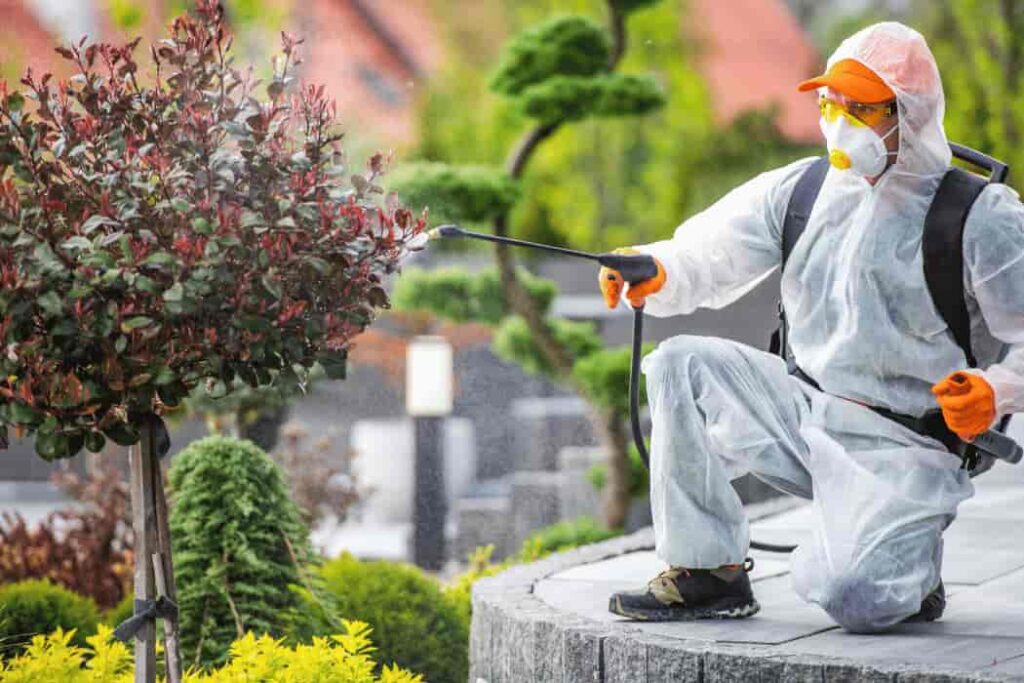The beauty and bounty of a flourishing garden can quickly be diminished by the presence of pests. These unwanted creatures pose a threat to the health and wellbeing of our beloved plants, leaving gardeners frustrated and discouraged. In order to maintain a thriving garden, it is crucial to have an effective pest control plan in place. With the increasing emphasis on organic and sustainable gardening practices, finding natural and environmentally-friendly methods of pest control is paramount. In this article, we will explore the various types of pests that commonly plague gardens, discuss the potential damage they can cause, and provide practical solutions for protecting your plants. By implementing these pest control strategies, you can ensure a bountiful and healthy garden for years to come. Together, let’s learn how to defend our gardens against pesky intruders and maintain a vibrant and flourishing outdoor space.

Understanding common garden pests
Gardening enthusiasts are well aware of the challenges posed by pests that target their beloved plants. These unwanted visitors can wreak havoc on a well-tended garden, causing damage to foliage, flowers, and even fruits and vegetables. It is imperative for gardeners to understand the common garden pests that they may encounter, in order to effectively protect their plants and maintain a thriving garden. By familiarizing themselves with the characteristics, habits, and signs of infestation associated with different pests, gardeners can implement appropriate prevention and control measures to minimize the impact of these nuisances and ensure the health and vitality of their plants.
Prevention is key to success
In order to maintain a pest-free garden and protect your precious plants, it is crucial to prioritize prevention as a key strategy for success. Taking proactive measures to prevent pest infestations can save you time, money, and the frustration of dealing with damaged plants. Start by regularly inspecting your garden for any signs of pests or potential vulnerabilities. Implementing proper sanitation practices, such as removing debris and weeds, can eliminate hiding places and breeding grounds for pests. Additionally, practicing good plant care techniques, such as proper watering and fertilization, can help strengthen the plants’ natural defense mechanisms. By implementing preventive measures and staying vigilant, you can significantly reduce the likelihood of pest problems and ensure the longevity of your garden’s health and beauty.
Natural remedies for pest control
One effective approach to pest control in your garden is to explore natural remedies that are safe and environmentally friendly. These alternatives to chemical pesticides not only help protect your plants but also minimize potential harm to beneficial insects and other wildlife. One such remedy is companion planting, where certain plants are strategically placed together to repel pests or attract beneficial insects. For example, planting marigolds alongside vegetables can deter aphids and nematodes. Another natural solution is creating homemade insecticidal sprays using ingredients like soap, garlic, or neem oil, which are known to be effective against a wide range of pests. Additionally, utilizing physical barriers such as netting or row covers can prevent pests from gaining access to your plants. By incorporating natural pest control methods into your gardening routine, you can foster a healthy and thriving garden ecosystem while keeping unwanted pests at bay.
Choosing the right pesticides
When it comes to choosing the right pesticides for your garden, it is essential to prioritize safety and effectiveness. Before selecting any pesticide, carefully evaluate the specific needs of your plants and the type of pests you are dealing with. Conduct thorough research to understand the potential risks associated with different pesticides and their impact on the environment. Look for products that are labeled as organic or approved for organic gardening, as they tend to have lower toxicity levels and are safer for both your plants and the ecosystem. Additionally, consider using integrated pest management (IPM) techniques, which involve a combination of cultural practices, biological controls, and targeted pesticide applications. By adopting a thoughtful and informed approach to pesticide selection, you can effectively protect your garden from pests while minimizing negative impacts on the environment.
Steps to take if infested
In the unfortunate event that your garden becomes infested with pests, it is important to take immediate action to prevent further damage to your plants. The first step is to accurately identify the type of pest you are dealing with. This can be done by closely examining the affected plants and looking for any signs of damage or presence of pests. Once identified, research the specific pest’s habits, life cycle, and vulnerabilities to determine the most effective control methods. In many cases, non-chemical control measures such as handpicking or pruning affected parts of the plants can be utilized. However, for severe infestations, targeted pesticide applications may be necessary. When using pesticides, always follow the instructions on the product label carefully, wearing appropriate protective clothing and ensuring proper application techniques. Regular monitoring and maintenance of your garden will also help to prevent future infestations and ensure the long-term health of your plants.
Conclusion
It is important to prioritize pest control in your garden in order to protect your plants and ensure a successful harvest. By educating yourself on common garden pests and implementing preventive measures such as proper sanitation and natural pest repellents, you can effectively manage and eliminate potential threats. Remember, protecting your garden from pests not only benefits your plants, but also promotes a healthy and thriving ecosystem in your backyard. With these tips and techniques, you can maintain a beautiful and pest-free garden all season long.


